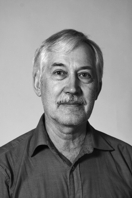Estonia’s future in a changing world
The writer discusses whether we have a moral right to leave problems we have not succeeded in coping with for future generations to resolve. We cannot even foresee what will happen in the next 100 years, yet nuclear waste remains hazardous for tens or hundreds of thousands of years. Our geographical location is immutable as well, and geography will determine more than politics in the long run.
Alongside the climate and other impermanent things, there are other things that will not change in the centuries or even millennia to come. One of them is human nature: our basic personality traits, our aspirations, desires, fears and joys. Young people were taught in Soviet-era universities that the basis of everything was economics. It is a teaching that our neoliberals are continuing in a new form, in even more radical form – both the ones who started their career as lecturers in Marxist-Leninist disciplines and their successors. For twenty years, we have been ruled by the ideology that the value of everything can be measured in money. But money is a one-dimensional quantity that cannot be placed in correspondence with important things in our multidimensional world. The economy is not a foundation. Rather the basis is the individual person along with the individual’s nature, the individual in its social community, its environment. Economics is a superstructure, just like politics. This means that the economics will remain economics and politics will remain politics long after we are gone – that is, as long as humans continue to be the species they have been since the Early Stone Age. As long as they battle and compete for power, recognition, love, sex, things of beauty, food and natural resources. These are humans’ unchanging values and for the most part, people have shortages of these things. But economics and politics may change and they will change, certainly far more than human nature.
It would be a great error to think if there are no alternatives to democracy and market economy just because there are none currently. But it would also be a mistake to think that these alternatives will necessarily be found. Or that alternatives will be found (or not found) to the current ways in which energy is produced and consumed. Perhaps we will finally tame nuclear fusion in the coming decades, but maybe it will never happen.
Climate change is not the only ecological catastrophe that could hit us in the next hundred years. Another such catastrophe is the extinction of species and ecosystems that if it starts gaining momentum may lead to sudden changes in Earth’s natural environment, the biosphere. It is hard to predict whether the consequences of such changes will be more clearly felt in the temperate zones and polar areas or in the tropics and subtropics. An eco-catastrophe with a biological background will likely give no reason to rewrite the future scenario sketched out here. This does not take into account a number of external factors, all of which can shift the course of events in some other direction. This future scenario and the conclusions stemming from it are probability-based – it could happen that way, or it might not. Probability-based conjectures do not give certain answers, but probabilities must certainly be taken into consideration.
